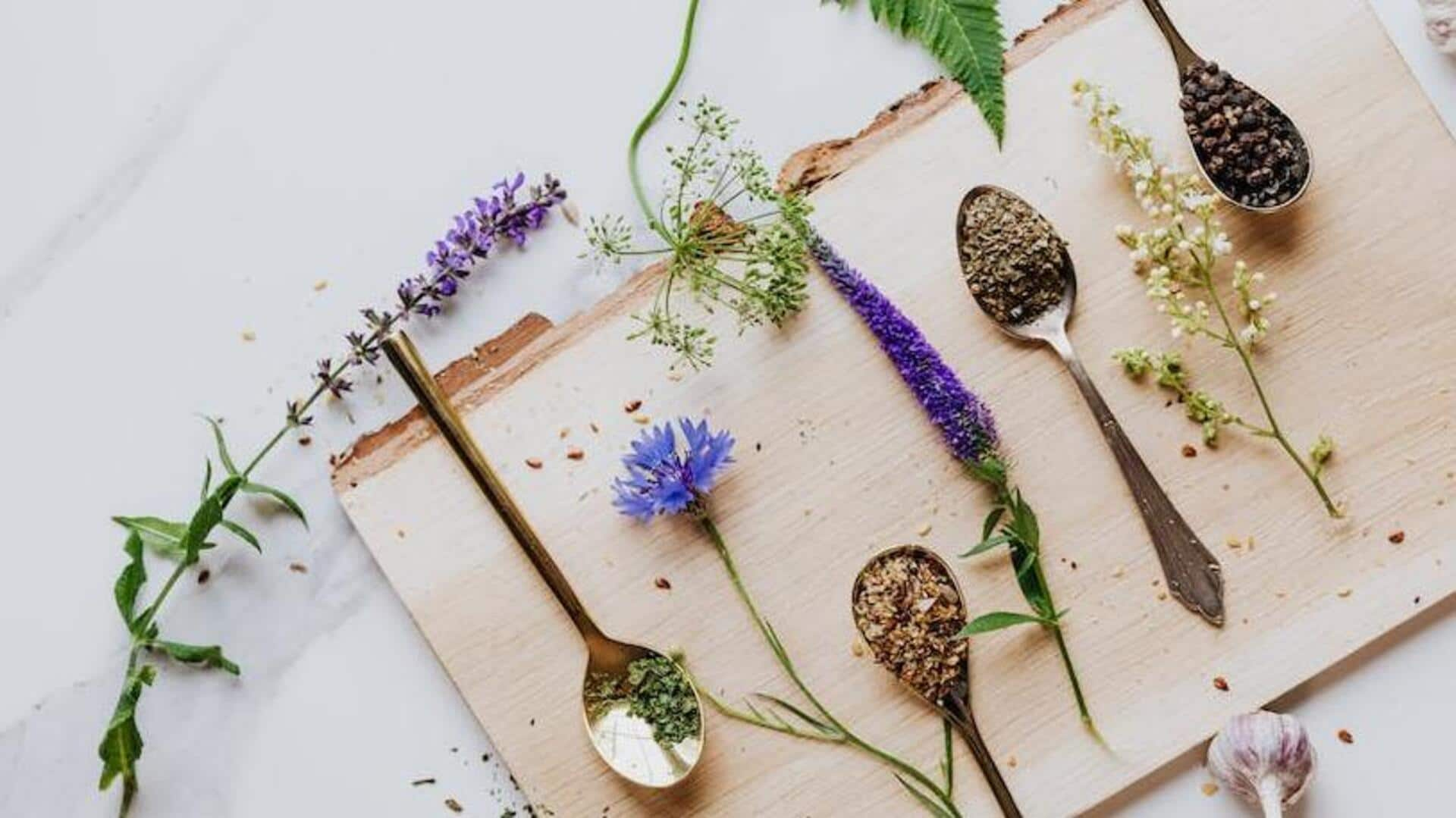
Blooming health: Remarkable benefits of edible flowers
What's the story
Flowers have long been prized for their beauty and scent. Beyond just being beautiful, these tiny blooms may enrich your diet with new flavors, textures, and nutrients. There are many edible flowers out there that we often mix with teas, curries and sometimes in smoothies. Let's explore the world of edible flowers and learn about all the amazing health benefits they offer.
Flower 1
Lavender
Most people associate lavender with its characteristic aroma, which is praised for its relaxing properties. Lavender is a very enticing addition to a range of meals, including baked products, syrups, herbal teas, dry spice rubs, and herb mixes due to its flavor and aroma. Lavender tea is known to help reduce anxiety and insomnia. Additionally, it may aid in digestion and alleviate headaches.
Flower 2
Hibiscus
Deeply colored hibiscus flowers are commonly used to make tea, with the dried flower parts, especially the calyx (the flower's covering), being used to prepare traditional hibiscus tea. Research indicates that hibiscus can effectively support normal blood pressure and cholesterol levels due to the presence of anthocyanins and polysaccharides, making it a valuable source of antioxidants.
Flower 3
Rose
Rose, known for its fragrant and sweet flavor, can be enjoyed in its raw form or blended with various beverages, fruits, and vegetables. Edible rose petals offer a delightful aroma and flavor. Furthermore, incorporating rose petals into your diet may have anxiety-relieving effects. Rose water, obtained through the distillation of rose petals, has a history in traditional medicine for its anti-inflammatory and calming properties.
Flower 4
Marigold
Marigold is often used to produce herbal drinks, ointments, and medicines. Marigold petals are used in salads or as a natural food coloring. When used externally, the flowers offer calming effects and are used to treat sunburn, bites, and warts. Marigold tea is high in antioxidants and has anti-inflammatory properties. Additionally, marigold flowers contain antioxidants that are beneficial for eye health.
Flower 5
Chrysanthemum
Chrysanthemum, a perennial herb, has a history in traditional medicine for alleviating bone diseases, sleeplessness, and headaches. Known for its calming and sedative attributes, this flower contains anthocyanins, potent antioxidants supporting anti-inflammatory pathways. Chrysanthemum is commonly consumed as a tea or used as a garnish in salads and soups. It is also believed to aid detoxification and boost energy levels.